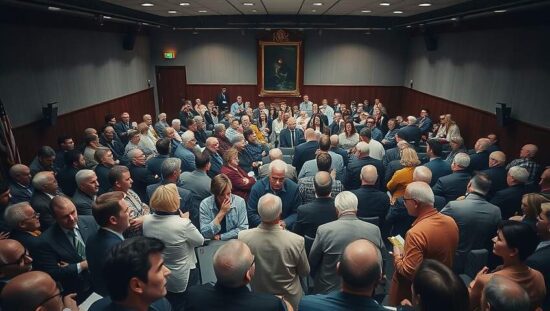The opposition within the German Bundestag has sharply criticized Bavarian Prime Minister and CSU leader Markus Söder following his presentation of a ten-point plan for the automotive industry, putting forward their own demands.
Andreas Audretsch, deputy parliamentary group leader for the Green Party, told “Welt” that the future lies in electromobility. He emphasized that German companies are capable of leading in this area and the government should prioritize its development through measures like social leasing programs for electric vehicles, increased investment in charging infrastructure, affordable electricity and protection for domestic automakers against dumping from China.
Audretsch accused Söder and the Union party of “once again running a campaign against advanced technologies and innovations” stating that their “backward steps” jeopardize hundreds of thousands of jobs in Germany. He argued that they are addressing symptoms of the crisis rather than its root causes.
Leif-Erik Holm, the AfD’s parliamentary group’s economic policy spokesperson, called for the elimination of the combustion engine ban and prevention of dramatic CO2 penalties, advocating for the freedom for drivers and manufacturers to choose their preferred propulsion systems. He dismissed “electric car subsidies” as inefficient, arguing they create significant “free-rider effects” and cost taxpayers billions.
Holm also criticized the energy policy as “completely wrong” arguing for a swift change and decrying further billion-euro subsidies for industrial electricity prices as merely addressing symptoms of a “failed energy transition”. He asserted that a “renaissance of nuclear power” is “essential” echoing the actions of neighboring countries, alongside new gas-fired power plants that can operate profitably.
Holm further called for a reduction of the “regulatory jungle” ending the “tormenting” of drivers and manufacturers with mandatory assistance systems like speed limiters, as well as scrapping laws such as the supply chain act and numerous verification requirements.
Holm dismissed Söder’s plan as “window dressing” suggesting that Söder knows he won’t be able to implement his core demands within the current coalition. He questioned why Söder is addressing these issues now, arguing he should have incorporated them into the coalition agreement.
Agnes Conrad, spokesperson for sustainable automotive policy for the Left Party, stated that state billions of aid should no longer flow without conditions. She called for any support for the automotive industry to be linked to job and location guarantees, advocating for the gradual conversion of large automotive corporations into “common-good-oriented foundations” that prioritize secure jobs, investment in climate-neutral production and regional value creation over shareholder profits.
Conrad criticized Söder’s “adherence to the fossil combustion engine” as a “misdirection” that risks hundreds of thousands of jobs, arguing the future lies not in e-fuels for luxury cars but in a “socio-ecological transformation” – including more buses, trains, electric trucks, a charging and recycling infrastructure in public hands and strong protection for suppliers.
The Union parliamentary group echoed Söder’s perspective, stating that the automotive and supplier industries are the “lifeline of the German economy” securing prosperity and innovation with 770,000 direct employees. They advocated for competitive energy prices, deregulation and tax incentives to maintain Germany’s automotive competitiveness, supporting “technology-open change rather than bans” like the combustion engine phase-out.





